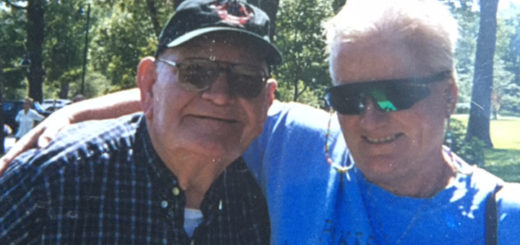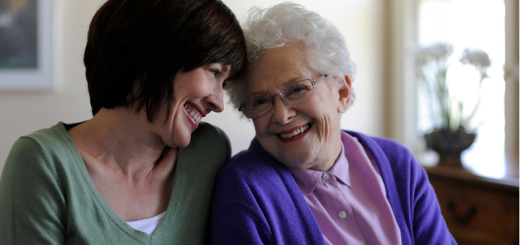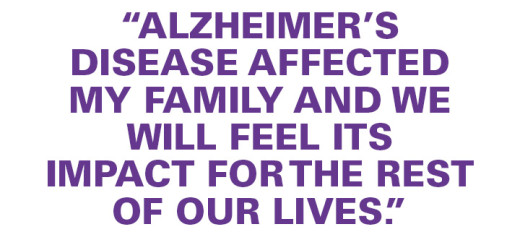Alzheimer’s in the Latino Population
There are over 34 million unpaid caregivers in the United States (AARP, 2008). Spouses, children, grandchildren, extended family, neighbors and friends step in and provide help with everyday needs of individuals from all walks of life coping with disabilities, chronic disease and the difficulties that come with aging.
Caregivers of Alzheimer’s patients face special challenges – and those challenges are magnified when there is a language barrier between caregiver/patient and the health system.
There are about 200,000 Latinos with Alzheimer’s now in the US. By 2050, the number of Hispanic elders with Alzheimer’s and related dementias could increase by over six times. U.S. Latinos face a higher risk of Alzheimer’s and other dementias because they are living longer, but also because they have higher rates of heart health risk factors, such as diabetes and high blood pressure.
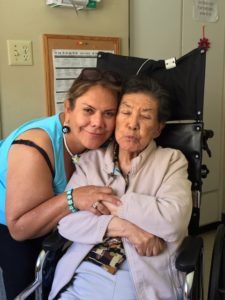 Yet, despite the increasing number of people developing Alzheimer’s, there is still a general lack of information and a strong stigma among Latinos. Many Latinos see memory problems as being caused by age-related issues, and once their loved one is diagnosed they prefer to use the word “dementia” instead of Alzheimer’s. They would say, “My father doesn’t have Alzheimer’s, only dementia,” not realizing that Alzheimer’s is the most common type of dementia.
Yet, despite the increasing number of people developing Alzheimer’s, there is still a general lack of information and a strong stigma among Latinos. Many Latinos see memory problems as being caused by age-related issues, and once their loved one is diagnosed they prefer to use the word “dementia” instead of Alzheimer’s. They would say, “My father doesn’t have Alzheimer’s, only dementia,” not realizing that Alzheimer’s is the most common type of dementia.
Ofelia Andrade is what you might call a representative caregiver in the Latino community – female, middle aged, caring for her mother, who has Alzheimer’s and whose English proficiency is limited. Ofelia had to stop working after her mother’s diagnosis and she became a full-time caregiver to her mom.
I come from a large family but the burden of caring for my mom was left only to me. I got very depressed to see how I was losing my mom to this disease. It was very hard. I didn’t know anything about Alzheimer’s. My mother’s doctor never explained to me what it was about, and I didn’t know of any resources that could help me care for my mom. -Ofelia Andrade
There is also a stigma in Latino communities about asking for help when it is needed. It may be seen as begging for charity, and many people want to try and make ends meet on their own. Many Latinos also feel it’s their responsibility to care for their parents – since their parents worked hard and sacrificed themselves to raise their children, now it’s the child’s turn to care for them. Some do not accept the fact that their parents need skilled care, and they keep and care for their parents at home until the end. Placing them in a “home” (a skilled care facility) is frowned upon by other Latinos.
At work, I saw an announcement about a caregivers program that the Alzheimer’s Association was offering in Spanish. I didn’t think twice. I called and signed up. We learned what the disease is, how you can prepare and how you can manage what is coming. I attended this training and loved it. I learned a lot. -Ofelia Andrade
The term “caregivers” is not widely used in Latino communities. Many simply describe themselves as taking care of a family member, which can diminish the fact that caregivers need help and support as much as the people they are caring for.
At the Alzheimer’s Association, we were compelled to establish the Savvy Caregiver educational program and support groups for people like Ofelia because of the number of Latino caregivers of dementia patients who came to us saying that they felt alone. The support groups are designed to help family members meet others who are in the same situation and can support one another through sharing stories and ideas. Language is important because people communicate their feelings best in their native tongue.
It’s good to share ideas and feelings with others going through the same thing I am. Knowing each stage of the disease so I will not be caught off guard. This way I can be prepared for what’s coming, and feel that I am doing the best I can for my mother and get rid of the feelings of guilt. We also learn how to take care of ourselves. I was given a respite grant so I could rest for at least 2 weeks. – Ofelia Andrade
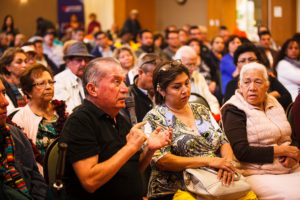 It is very important that Latinos learn more about Alzheimer’s, talk more about the disease and reach out for the help and support that is available. In an effort to further increase knowledge and resources available, we have launched a website in Spanish and now provide one-on-one support in Spanish through our Helpline (1.800.272.3900). We also held a Latino Alzheimer’s Conference last year, where over 150 participants including seniors and family members learned about the disease, and how to better care for their loved one and themselves. I remember speaking with two brothers who attended the conference because they care for their dad with Alzheimer’s disease, and they wanted information to help them make the best choices for his care and his future. At the end of the conference, one brother said, “Thank you for this event, I feel so good in my heart after today’s program.”
It is very important that Latinos learn more about Alzheimer’s, talk more about the disease and reach out for the help and support that is available. In an effort to further increase knowledge and resources available, we have launched a website in Spanish and now provide one-on-one support in Spanish through our Helpline (1.800.272.3900). We also held a Latino Alzheimer’s Conference last year, where over 150 participants including seniors and family members learned about the disease, and how to better care for their loved one and themselves. I remember speaking with two brothers who attended the conference because they care for their dad with Alzheimer’s disease, and they wanted information to help them make the best choices for his care and his future. At the end of the conference, one brother said, “Thank you for this event, I feel so good in my heart after today’s program.”
This is an issue that will continue to grow in urgency as our population grows older and more diverse, and more people age in community for a variety of reasons. We are committed to doing everything we can help ensure that people like Ofelia””unsung heroes for their loved ones struggling to bridge the language and knowledge gaps”” struggle no more.
Helpful information related to this post:





